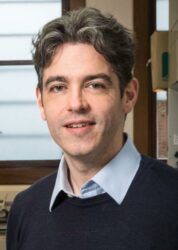Chemists at the University of Glasgow have developed a flow battery system they say could reduce the charging time of electric cars “from hours to seconds”.
The chemists said their system uses a nano-molecule that can store electric power or hydrogen gas— “giving a new type of hybrid energy storage system that can be used as a flow battery or for hydrogen storage”.
In a paper published in the journal Nature Chemistry, the chemists say their ‘hybrid-electric-hydrogen’ flow battery can store energy, “releasing the power on demand as electric power or hydrogen gas that can be used a fuel”.
“When a concentrated liquid containing the nano-molecules is made, the amount of energy it can store increases by almost 10 times,” the team said.
“One potential benefit of this system is that electric cars could be charged in seconds, as the material is a pumpable liquid. This could mean that the battery of an electric car could be “recharged” in roughly the same length of time as petrol cars can be filled up. The old battery liquid would be removed at the same time and recharged ready to be used again.”
The approach was designed and developed by Professor Lee Cronin (pictured), the University of Glasgow’s regius chair of chemistry, and Dr Mark Symes, senior lecturer in electrochemistry, also at the university with Dr Jia Jia Chen, who is a researcher in the team.
Prof Cronin said: “The very high energy density of our material could increase the range of electric cars, and also increase the resilience of energy storage systems to keep the lights on at times of peak demand.”












